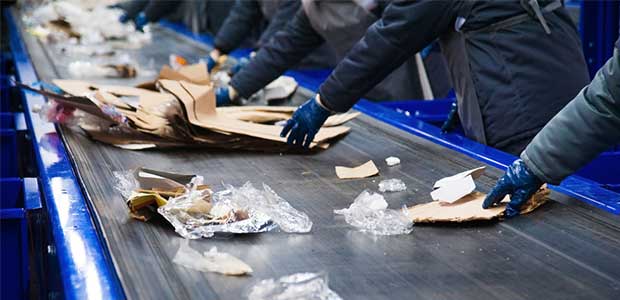
Here Are Three Solutions for Recycling Programs Struggling During COVID-19
COVID-19 has disrupted companies of all types worldwide. Despite hard times, however, there are steps you can take to stabilize your operation.
- By Jenna Tsui
- Jul 02, 2020
COVID-19 has disrupted companies of all types worldwide. Recycling centers, organizations and programs are no exception and may have seen a dip in business or engagement. Despite this downward trajectory, there are steps you can take to stabilize your operation. Thinking outside the box is necessary during a pandemic of this caliber, as it will help you out during and after the pandemic.
1. Sanitation Practices
As some states start to open back up, so do will businesses. Recycling centers are operating in certain locations — if yours is, too, you'll need to follow the best sanitation practices. The Centers for Disease Control and Prevention (CDC) outlines guidance and practices for businesses and employers.
The first step is acquiring the right personal protective equipment (PPE). This includes sanitation and disinfectant products, masks, gloves, face protection and any other products employees require to complete their tasks. Social distancing while at work, too, is a key tactic to slow the spread. If someone does contract the virus, it is important to reassess operations and get tests for those who need it.
Once you complete these steps, you can advertise that your organization follows all recommendations from the CDC. As things open back up, people want to know they are working with professionals who take COVID-19 seriously. Then, your business can adjust to the new normal of sanitizing all recyclables that come in.
2. Mail-in Programs
It is vital to increase accessibility during a pandemic. Individuals need to be able to use your recycling facility in a way that limits their risk of contracting the virus. To create more channels for doing so, you can implement a mail-in program.
Depending on location and resources, some people may feel more comfortable recycling by mail. It may be more convenient for others. Either way, a mail-in program allows for an innovative approach to recycling. Take TERRA's Done with IT, for example. It creates an additional, low-contact channel to expand operations and stay afloat during COVID-19.
Through mail, your facility can continue to accept different materials. Accepting e-waste is a huge business now, on top of boxes, plastic and glass. Recovering valuable items during recycling, like broken glass or specific plastics, is a crucial step in the process. It keeps the chain running smoothly during the pandemic.
3. Upgraded Technology
Recently, the U.S. House of Representatives introduced the Plastic Waste Reduction and Recycling Act. This act seeks to reduce plastic waste, as well as enforce stricter regulations for manufacturing. Your business must adjust to these new changes. A helpful way to do so is by upgrading your technology or investing in new devices and systems.
Data and analytics systems offer insight into business practices and operations. You can see which recycling areas are excelling and which need improvement during this pandemic. From there, you can better meet the legal and ethical guidelines, standards and laws with these visuals. Data systems provide that connection.
New technology can also facilitate better internal communication. A central communication and storage base lets employees work together efficiently — a necessary step when social distancing is in place. An organized digital platform keeps everything in line for easy access from any location. For instance, if you store protocols on Google Docs, employees can easily access the files to follow the safest recycling procedures.
Watch the Trends
Part of what makes COVID-19 so difficult to navigate is the unpredictability of it all. One day it appears to be getting better, and the next shows the opposite. For businesses, this fluctuation can feel never-ending. It is important to watch the trends and adjust your organization accordingly. When you adapt to the new norms, you better prepare your facility to succeed in times of uncertainty.
About the Author
Jenna Tsui is a Texan journalist who co-owns The Byte Beat blog. She writes about the latest news in sustainability, culture, technology and more. Check out her work on TBB or follow her on Twitter @jenna_tsui .